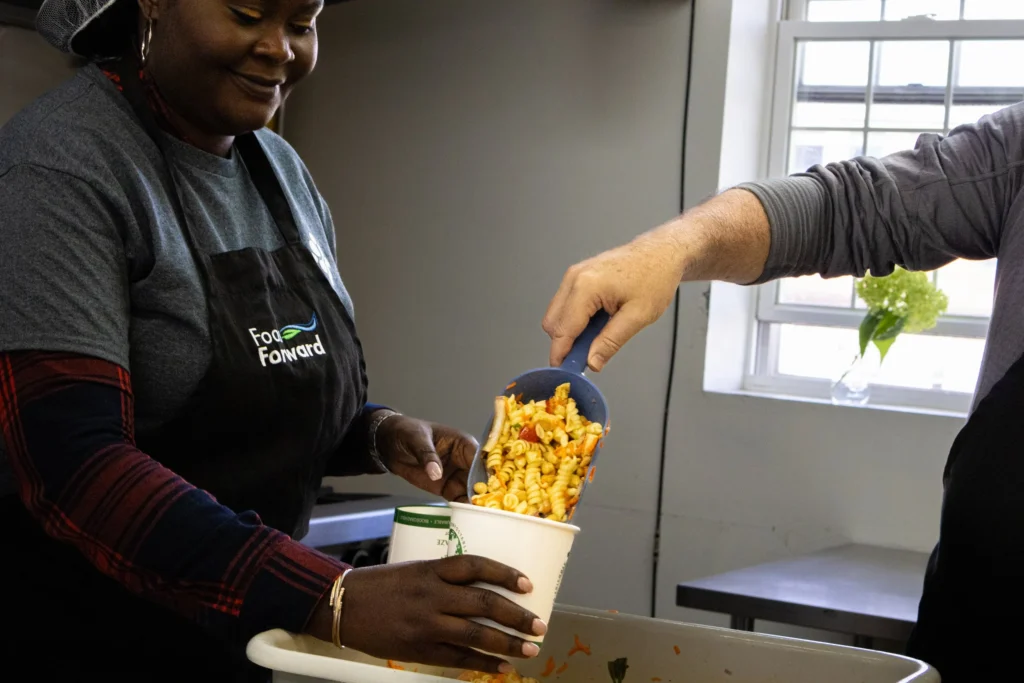
By: Zoe Miller
In the early 2000s, a pivotal moment in my journey toward civic engagement was watching the film Pay It Forward. It reminded me how even small actions can ripple outward. Learning about FoodForward, the Cambridge Food Bank’s new social enterprise, brought that same spark of inspiration.
I joined the Waterloo Region Community Foundation (WRCF) team as the first participants in FoodForward’s kitchen experience—which coincided with the program’s public launch. After months of piloting, groups could now see another side of the Cambridge Food Bank’s impact.
The Tour
When we arrived, the entrance buzzed with community members, volunteers, and staff carrying crates of fresh produce. The community pantry operates on a shopping model that prioritizes fresh, healthy food. Families facing food insecurity can access an emergency hamper once a month with ID and proof of residency. Over 2,000 hampers are distributed monthly, reaching roughly 5,000 people—one-third of them children.
Unlike traditional food banks, community members can access the flash fridge and overflow section of the food bank as often as needed, picking up perishable items like bread and produce in addition to their emergency hamper.
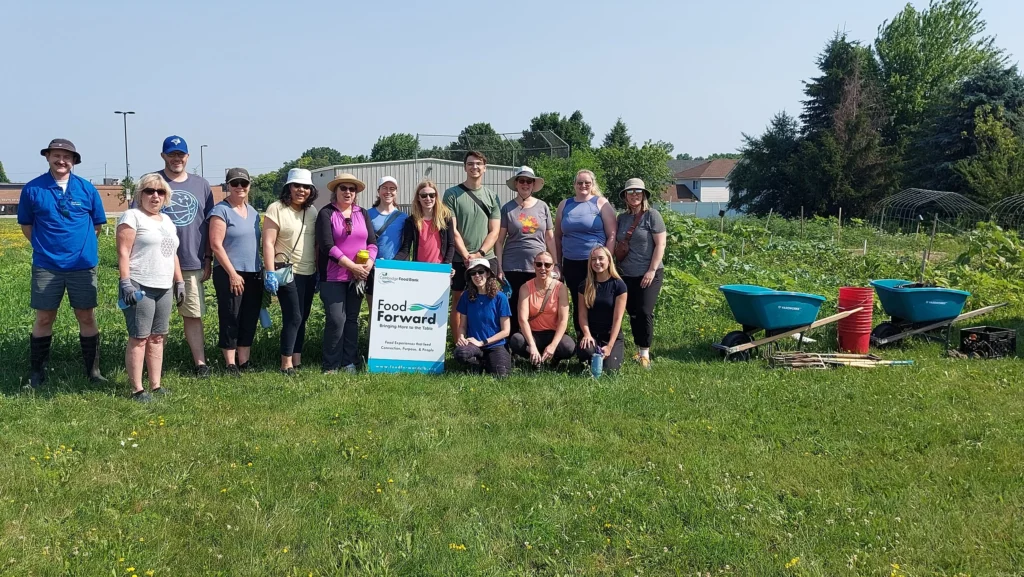
The Cambridge Food Bank also grows food through community gardens at the rare Charitable Research Reserve and Forward Church, which is shared through the community pantry. Produce is also purchased and sold through the Mobile Food Market (MFM), bringing fresh, quality produce to over 15 neighbourhoods in Cambridge and North Dumfries. Everyone is welcome, and full-price purchases help offset costs for others.
Food Rescue and Reducing Waste
One aspect that stood out to me—and to others on the tour—was food rescue. As one WRCF participant said, “I had no idea about the extent of food rescue and recycling the Cambridge Food Bank does.
Items not suitable for the pantry or flash fridge are directed to the kitchen for processing into ready-to-eat meals, baked goods, or preserves for sale at farmers markets. Items still not usable are directed into the animal food system or a farmer’s composting system, keeping waste out of landfills.
From a permaculture perspective, this is a closed loop—resources are used intentionally, distributed fairly, and waste is managed sustainably. Witnessing this approach showed me how even small actions ripple out to create meaningful change in our community.
Conestoga College research found that in just three months, these activities reduced greenhouse gas emissions enough to drive across Canada three times—proof of the environmental impact of thoughtful redistribution.
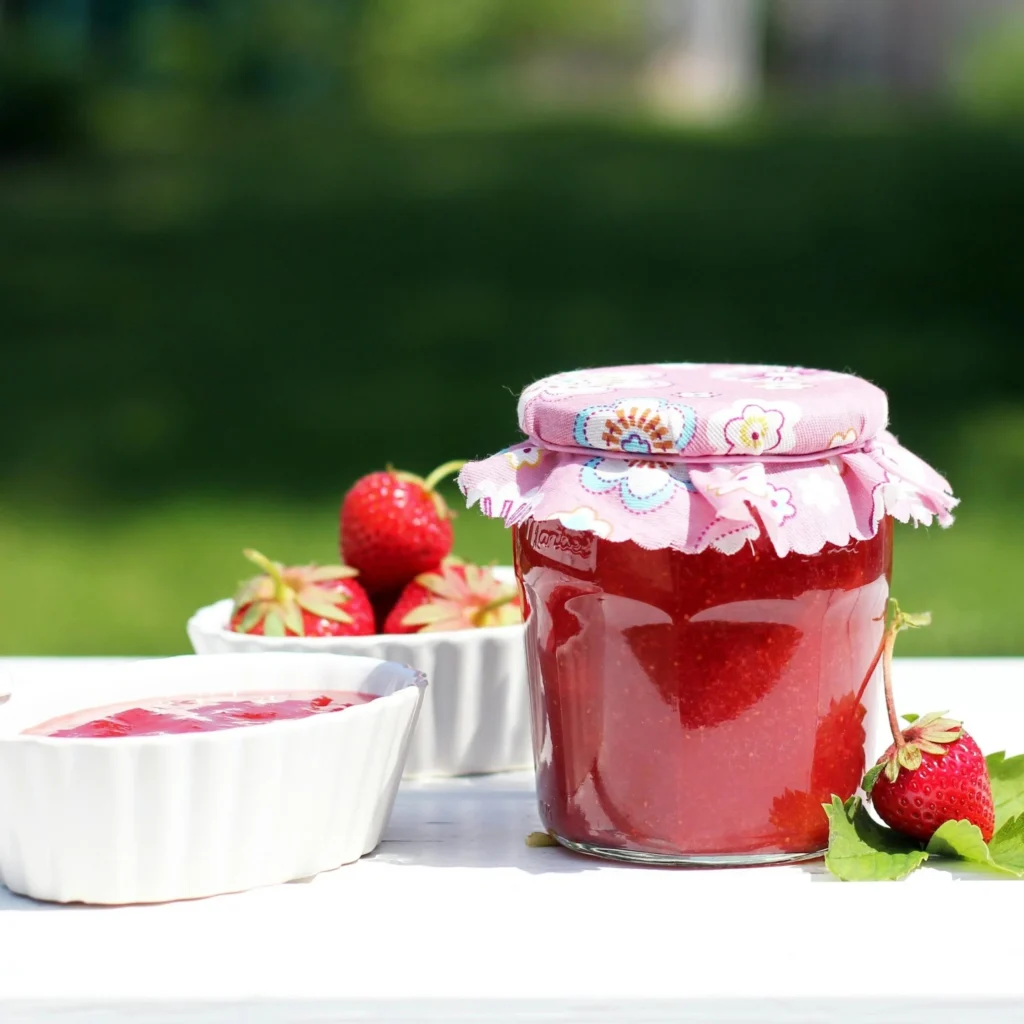
Surprising Insights: Wellness, Nutrition, and Cooking Programs
I was also surprised to learn about the Cambridge Food Bank’s wellness, nutrition, and cooking programs. Beyond providing food, they offer free programs for children, youth, adults, and families to explore cooking, nutrition, movement, and mindfulness.
These programs help people gain skills and knowledge to live healthier, more connected lives, extending the Cambridge Food Bank’s impact far beyond meal distribution.
Behind the Scenes: Warehouse and Food Processing
The warehouse is compact, with deliveries coming down a narrow lane that isn’t wide enough for trucks. Staff often hand-bomb food from the road inside. Everything is weighed, temperature-checked for cold chain management, and sorted into fridge, freezer, or bins before moving to the pantry or partner organizations.
Because of the tight space, each food item may be moved multiple times before reaching the community—one reason the Cambridge Food Bank is seeking a new building to expand capacity and efficiency.
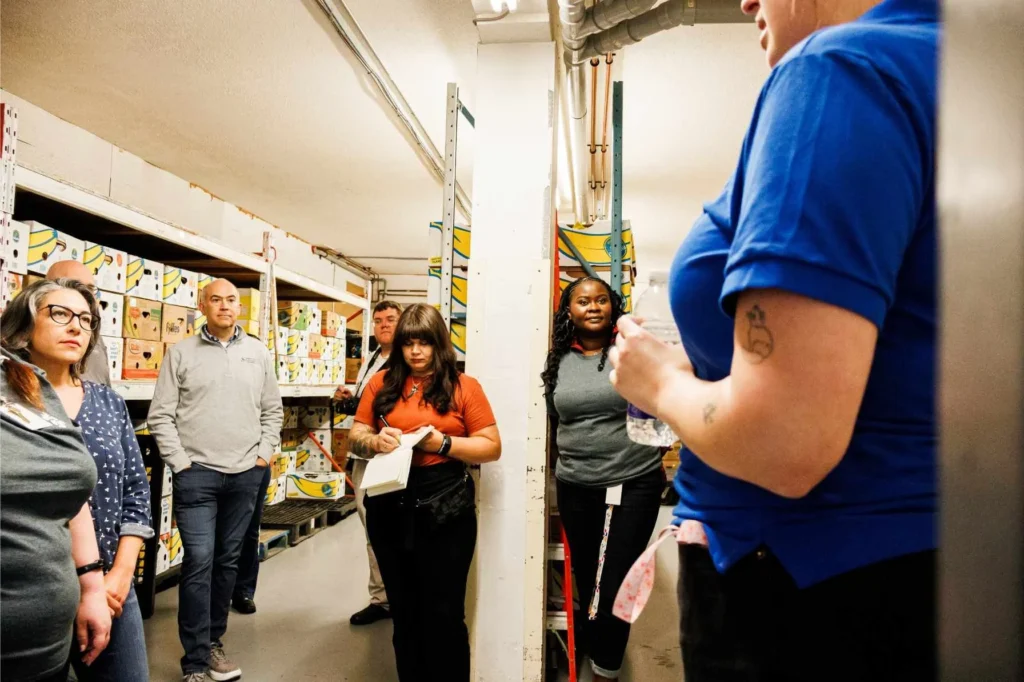
Into the Kitchen
Upstairs, we joined a hands-on experience. Program manager Lisa Leachman and CEO Diane McLeod shared insights and personal experiences, emphasizing FoodForward’s community impact.
Split into two teams, we donned aprons and prepared Mediterranean pasta salad using rescued and locally grown produce. With a friendly countdown, Team 1 finished 50 containers, Team 2 46—but every participant walked away with a sense of accomplishment. The finished meals, branded with WRCF logos, were ready for the community pantry.
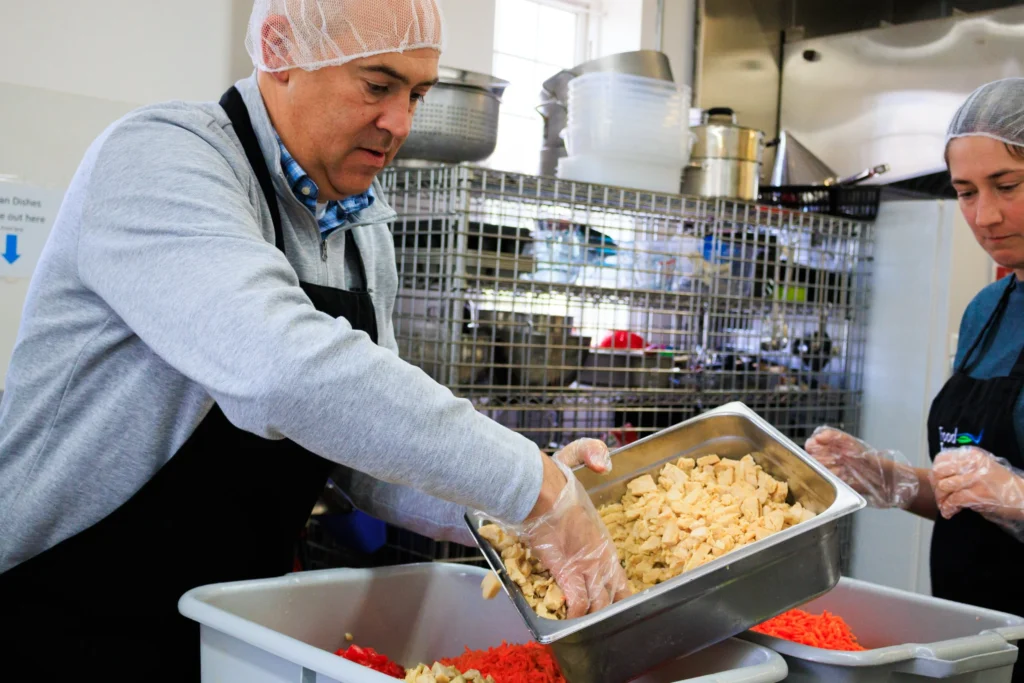
Build Team Spirit, Build Community
As a visitor, it was clear how perfect FoodForward is for corporate groups or teams looking to make an impact. Sorting food, gardening, and kitchen experiences combine team-building with social responsibility. Here are three experiences at FoodForward:
Sorting Experience: Hands-on, high-energy food sorting for groups.
Garden Experience: Plant, grow, and harvest in the community garden.
Kitchen Experience: Prep, cook, and package meals or baked goods for the pantry.
Experiences start at $750, with all proceeds going directly to the Cambridge Food Bank. Teams leave with strengthened collaboration, shared purpose, and a tangible impact on the community. It’s worth a visit to our business, non-profit or individual workshop pages to check out the options that resonates most for you and your group!
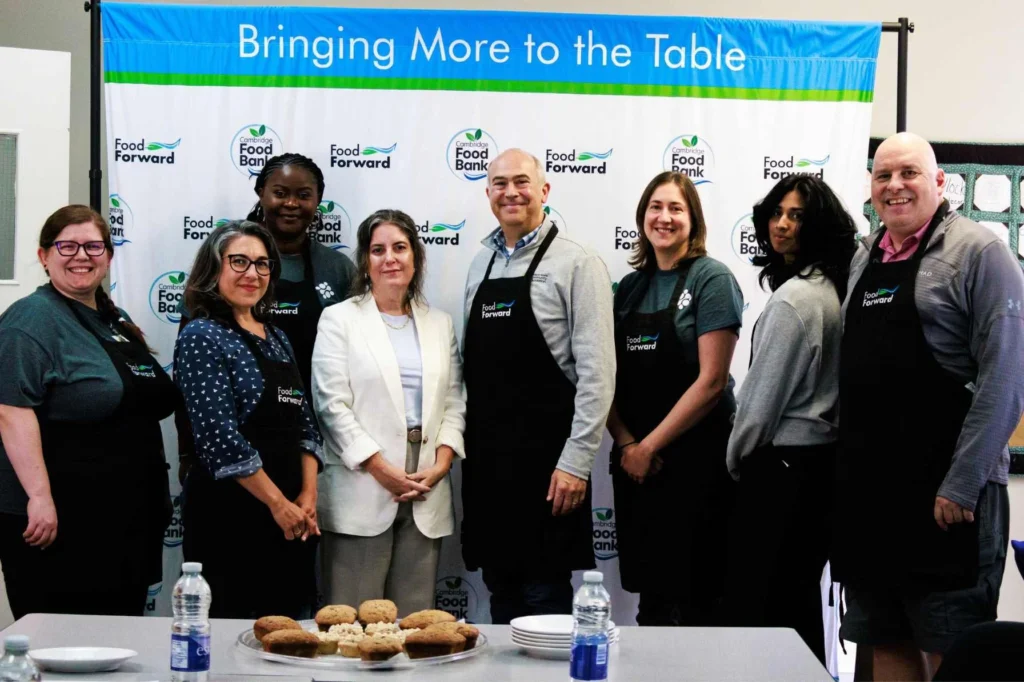
Click here to learn more about FoodForward
